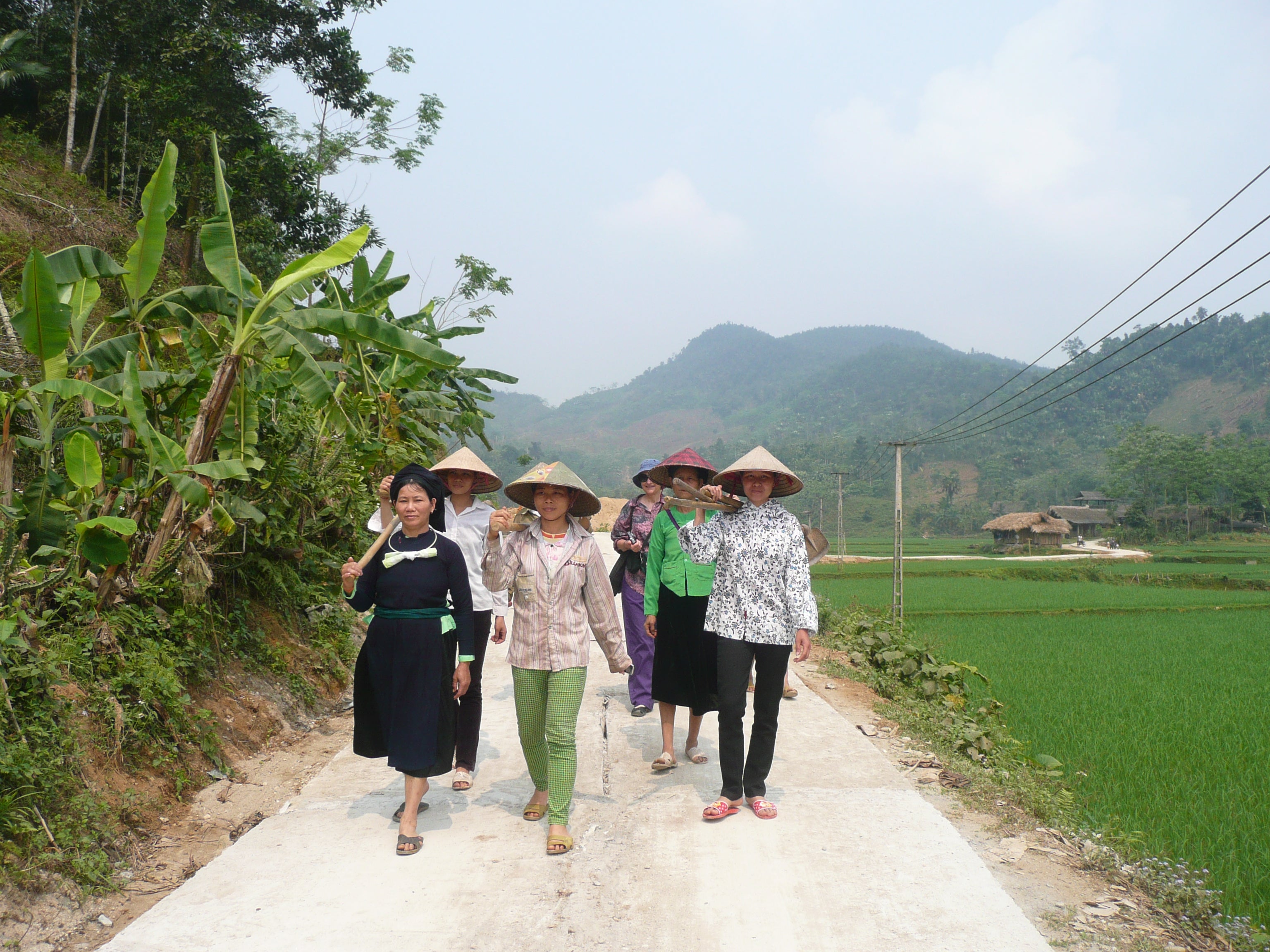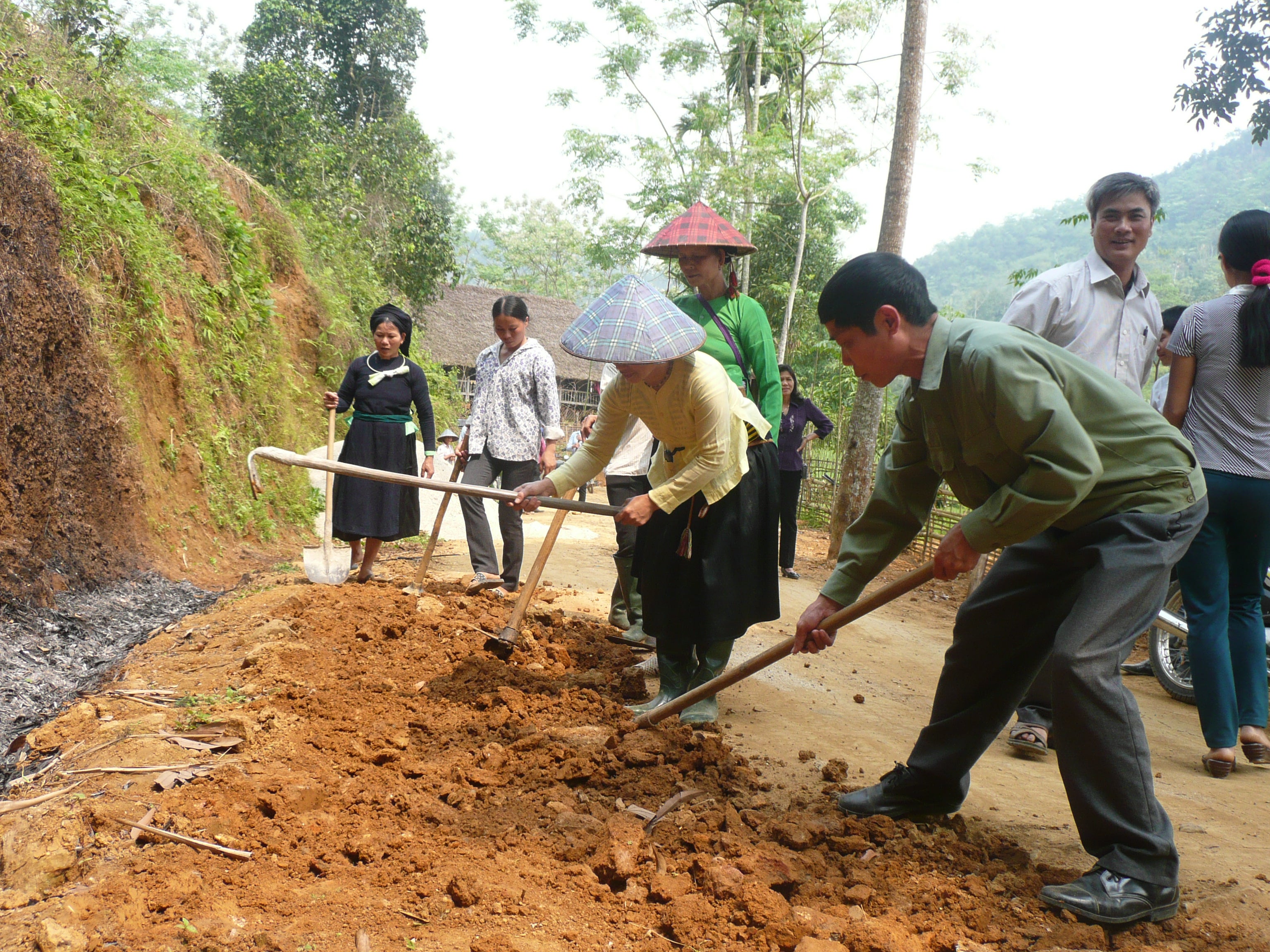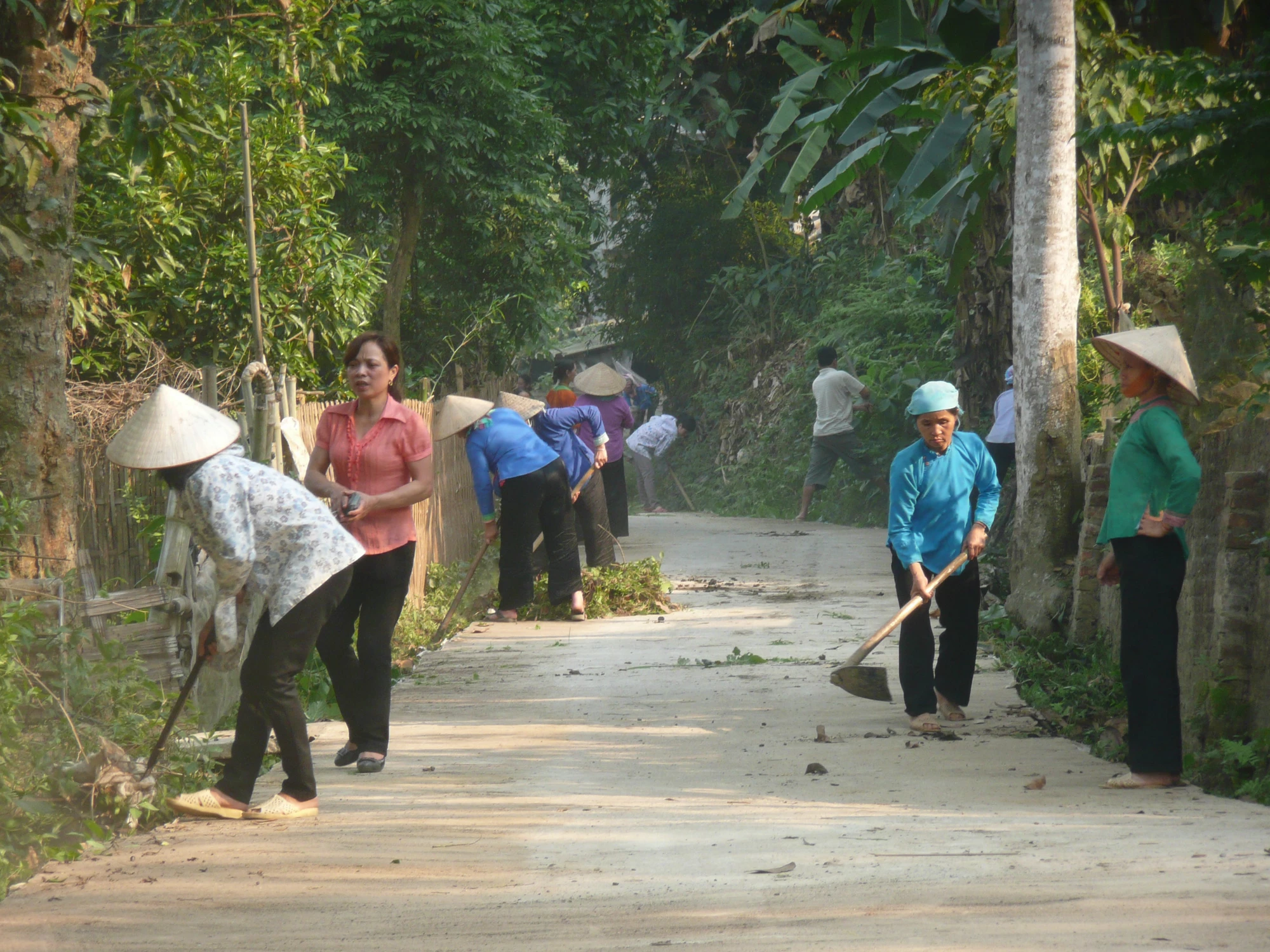
Vietnam’s economic emergence is perhaps best experienced along its rural roads: more than 175,000 kilometers of pavement, rubble and dirt track extend to two-thirds of the country’s population, including nearly all of the poorest people, who live among its productive farms, lush forests and meandering river valleys.
In recent years, road investments in Vietnam’s rural areas have improved socioeconomic development and promoted gender equity, social participation, improved school attendance, and more inclusive health services to impoverished regions. However, all but a few hundred communes remain off-grid, and infrastructural roadblocks and bureaucratic potholes have delayed the goal of a fully integrated road system.
The World Bank’s Third Rural Transport Project (RTP3) supported a win-win solution: employing ethnic minority women to sustainably manage road maintenance through an innovative participatory approach to local development. This blog entry describes the experience of improving the roads — and women’s lives — in rural Vietnam. Here are some of the lessons we’ve learned along the way:
Lesson 1: Solutions can come from unexpected sources.
The RTP3 task team’s investigation showed that up to a third of the population in Vietnam’s Northern Uplands provinces would be expected to contribute up to 10 percent of their total annual household expenditure to ensure safe passage along local roads — too much for most to afford. Furthermore, even when adequate resources are made available for maintenance, contractors have sometimes been unwilling to work in inaccessible regions for fear of mudslides during the rainy season.
The situation appeared intractable — the political and economic realities insurmountable. But a solution was at hand: when the project lacked resources to maintain rural roads, in speaking with the project team, many women from ethnic minority communities across Vietnam expressed their interest in volunteering to participate as stewards of their local roads!
The World Bank’s task team soon promoted the idea of having ethnic women work as road maintenance crews.
 Lesson 2: Take advantage of all the resources available.
Lesson 2: Take advantage of all the resources available.
A novel Rural Transport Project soon began to take shape. A pilot effort trained local ethnic minority women in routine maintenance skills and road-preservation practices, and provided formal employment opportunities for those with responsibility for specific sections near their communities. The Lao Cai Provincial Women’s Union — with its deep roots in the community and solid reputation at the district, commune and village levels — acted as a key implementing agency for the project. The Women’s Union managed and monitored the recruitment of women in Ban Lien, Nam Mon, Nam Tri, and Hoang Thu Pho villages, and provided them with training and equipment.
More than 1,500 ethnic minority women from four communes were trained as rural transportation managers, and many more eagerly await the opportunity. Following the training courses, women became road maintenance workers for the Provincial Women’s Union, and each earned a salary of about 100,000 Vietnamese dong (VND) a day (about US$4.80) for each section of road completed. To ensure high-quality work, the Bac Ha District Office of Urban and Infrastructure Management supervised and monitored work along the road sections. Community supervisors assisted, and Provincial Department of Transport staff provided technical guidance.
Across the road networks, 10–30 women are responsible for maintaining a one- to two-kilometer section for three months. Each person who participates in daily maintenance is guaranteed VND 100,000. A typical time frame for maintenance includes five to ten days per month of active work, depending on the maintenance workload and requirements for different road sections.
Beginning at sunrise, women from Hmong, Tay and Dao ethnic communities walk 10 kilometers, carrying shovels and hoes to their workplace — for many, the first formal employment opportunity of their lives. They work all day clearing debris, repairing broken sections, filling potholes, grading the surface, improving drainage systems, and cleaning side ditches. Together, they share the work — enlivened by stories and a common bond.
“Women like to do this work; they are competing to join. They think that maintaining the road makes the roads nicer and more convenient for transporting commodities to develop the household economy. During this time of the year, it often rains, so maintaining the roads during this time is good,” said Phung Pha Sui, one of the trainees.
Lesson 3: It is important to solidify the project’s benefits.
Stakeholder consultations undertaken by the task team also identified several specific advantages relating to the initiative:
- Road maintenance is more efficiently managed by local people
- Project funds provide direct benefits to communities and rural women
- Improved awareness of the critical importance of road maintenance among local communities creates trust and accountability across villages and builds capacity for cooperation
- As a result of increased economic power and social status, women have achieved a greater voice in community decision making and a more visible role in managing affairs at the household level.
 Lesson 4: Be open to local solutions to local problems.
Lesson 4: Be open to local solutions to local problems.
The VND 100,000 a day per person that local maintenance groups received for each section of road completed presented a challenge: the supply of willing workers outweighed demand. Fortunately, citizens from Nam Mon, Nam Det, Hoang Thu Pho, and Ban Lien provided a solution: steering committees rotated available positions among all women living in targeted communes.
This rotation allowed everyone to participate, resulted in greater buy-in from the communities, and created an environment of trust and mutual support.
Innovation is key to the program’s success. For instance, RTP3 demonstrates that productivity, profitability and accountability in rural networks management in Vietnam can be enhanced using an innovative approach to educating and collaborating with rural ethnic women — creating social benefits and increasing the stock of social capital that can be beneficial to other development projects.
The pilot program was subsequently expanded to the entire Lao Cai province and other two provinces (Thanh Hoa and Quang Binh) in 2012 through RTP3-AF. The project was completed on time on June 30, 2014 with funds fully disbursed and activities successfully accomplished.
A number of results and impacts generated from RTP3 implementation are being considered for a wider application at national and local level. At national level, Vietnam’s Ministry of Transport and the National Women’s Union are exploring funding options to expand the approach to more provinces. In addition, the Ministry of Labor, Invalids and Social Affairs (MolISA) with support from the International Labor Organization (ILO) are using the lessons learned from RTP3 as one of the model to generate public employment. MoLISA and ILO are working with Ministry of Planning to revise the Bidding Document of the National Procurement Law to encourage contractors to use local labor, especially women in rural areas.


Join the Conversation